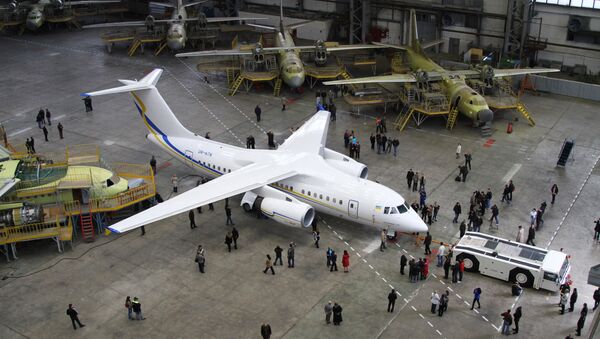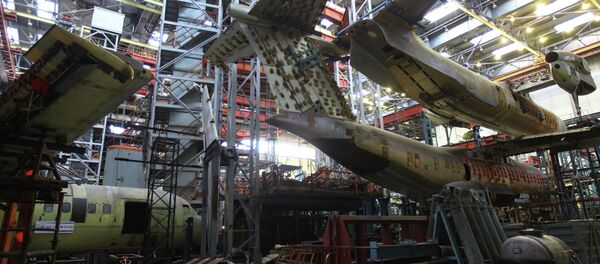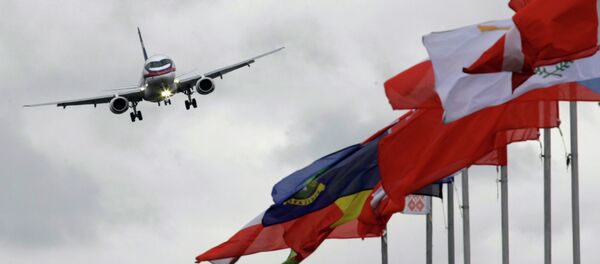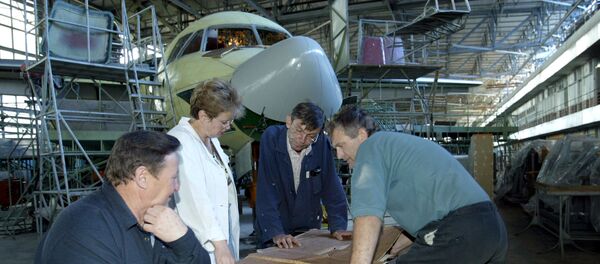Commenting on the proposed projects, Avia.ru editor-in-chief Roman Gusarov told Russian news and analysis site Vzglyad that he does not believe that the project has any chance of success, for several reasons.
Firstly, according to Gusarov, Poland "is not an aircraft manufacturing power which could help Ukraine with something. Ukraine is miles above Poland, and is in fact an aircraft manufacturing power," owing to its (partial) ability to produce aircraft which are not simply licensed craft based on Soviet-era designs.
The expert argues that "today, there are five countries which objectively possess high-level aviation technology. Despite the fact that Russia is not among the leaders in the production of civilian aircraft, it is one of the technology leaders. Poland does not appear anywhere near this list, and cannot appear. In refusing to cooperate with Russia, Ukraine is effectively offering as an alternative cooperation with no one."
Furthermore, according to Gusarev, "the only thing that Poland could possibly help Ukraine with is financial resources," which in his view, it does not have.
In Gusarov's view, without Russian support in raw materials and semi-finished components, or financial and technical ties and support, the path toward certification in Europe and the US will be unrealistically long and difficult. The switching of production of components to Ukrainian manufacturers will require huge investments into the modernization of productive forces, for which the Ukrainian government has no money.
"Replacing all the Russian-made components for the An-148 and other aircraft with foreign-made parts means, in effect, creating a new aircraft from scratch. Take, for example, the Ukrainian engine: it is made out of 80 percent Russian components and 100 percent out of Russian materials. It's not possible to simply replace the components, and Ukraine is not capable of creating a new engine. This again would require huge investment and a major testing program," Gusarov explained.
The expert cited Russia's development of the Sukhoi Superjet 100, which he noted required massive financial support on the part of the Russian government, and a slew of completely new technologies, "neither of which exist in Ukraine. We had attracted foreign parts manufacturers, whose products were already certified. Therefore we were able to achieve certification in Europe, and still we face resistance in the marketplace."
Gusarev noted that "despite all its advances in the development of aircraft and engines, Ukraine still lacks several important components that would allow it to become a self-sufficient aircraft manufacturing power. It does not have the scientific basis or the technological reserve. All the scientific modeling and all the testing of Ukrainian aircraft was previously conducted at the Zhukovsky Central Aero-Hydrodynamic Institute [in Moscow]. Testing of the engines created in Ukraine is also carried out by a Russian institute. Ukraine does not have such institutes."
Ultimately, Gusarev believes that Antonov's announcement on cooperation with Poland is an attempt to soften the blow resulting from the break in cooperation with Russia, serving "as a measure to ease social tensions" and bring workers in the sector false hopes that their factories will soon see new orders. In his view, the measure is a cruel game, "aimed at calming the large pool of workers who are employed in the sector, which has survived up to this day mainly due to Russian orders."





